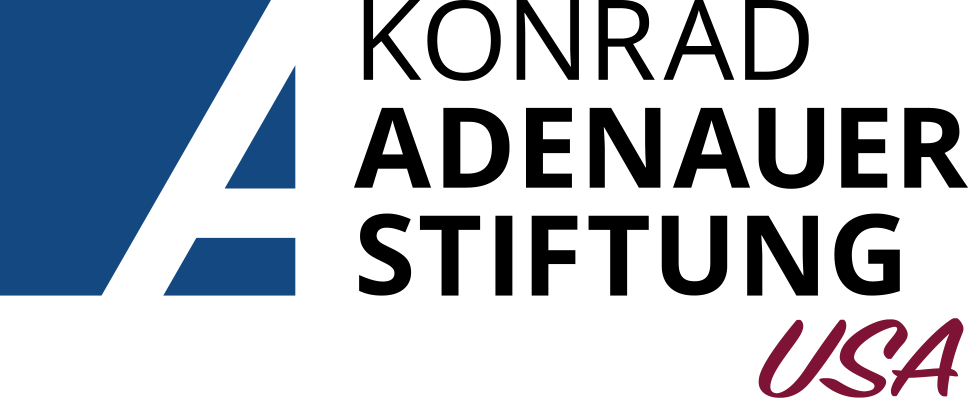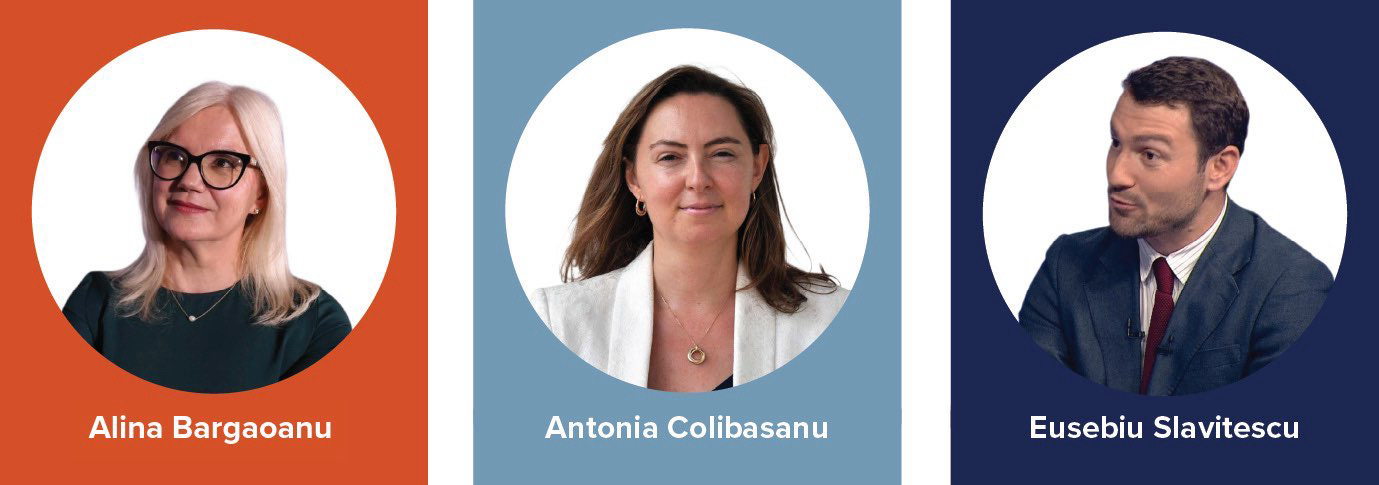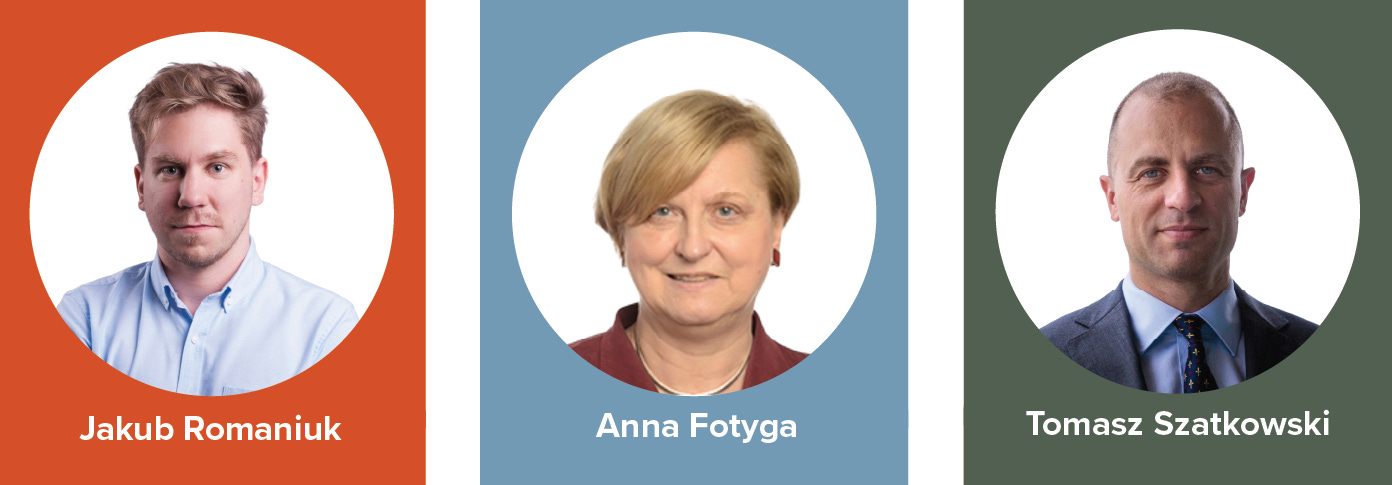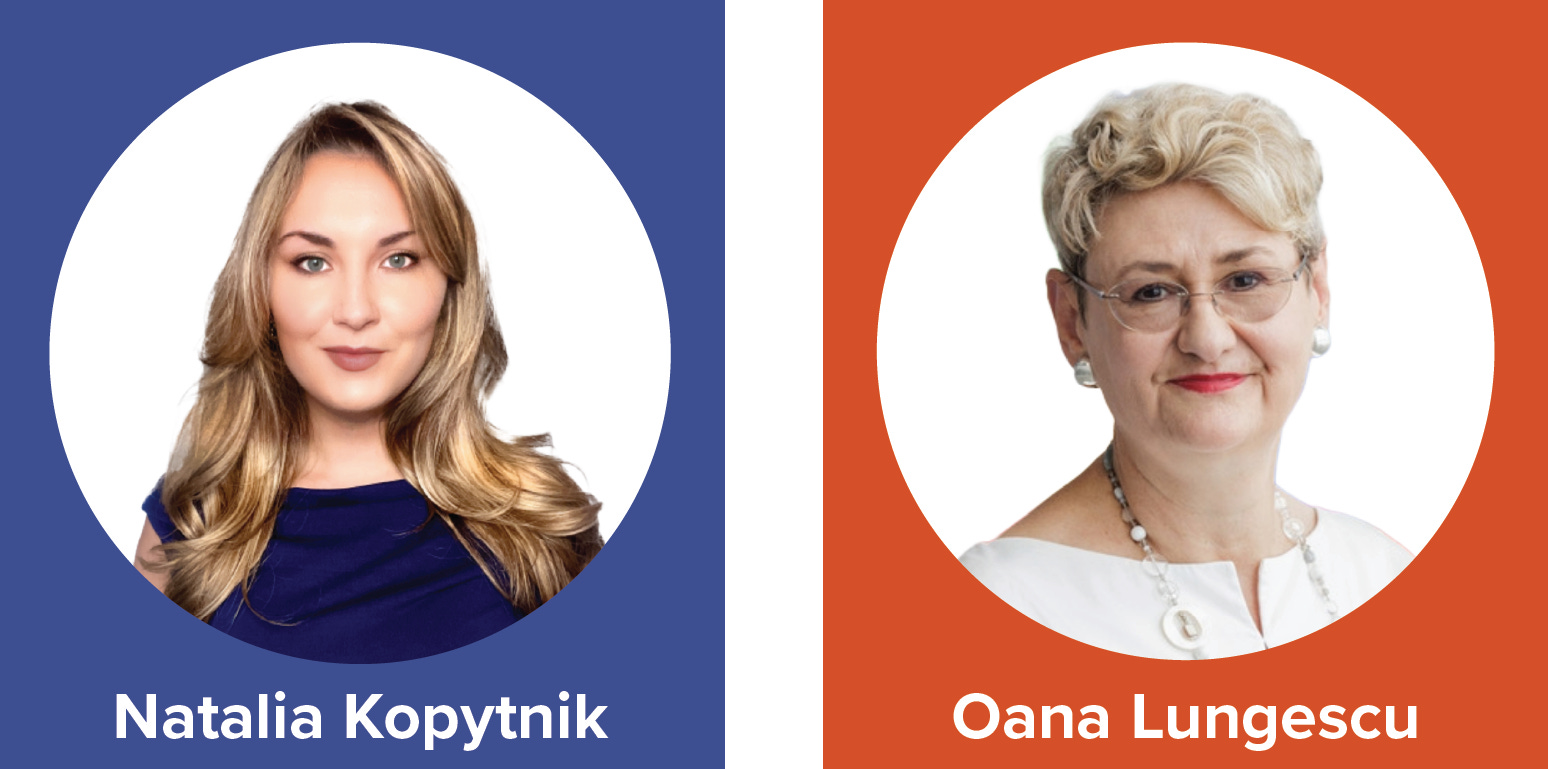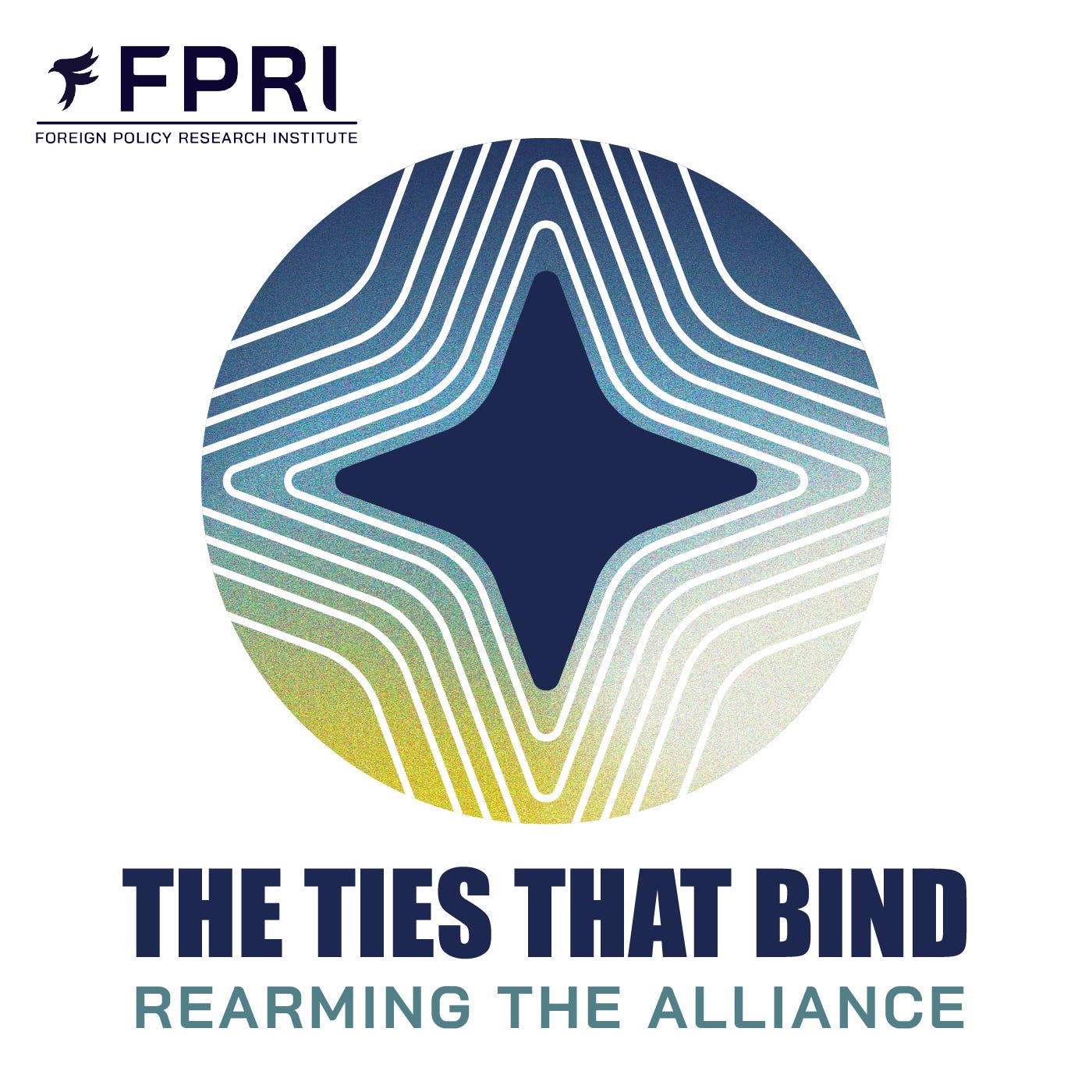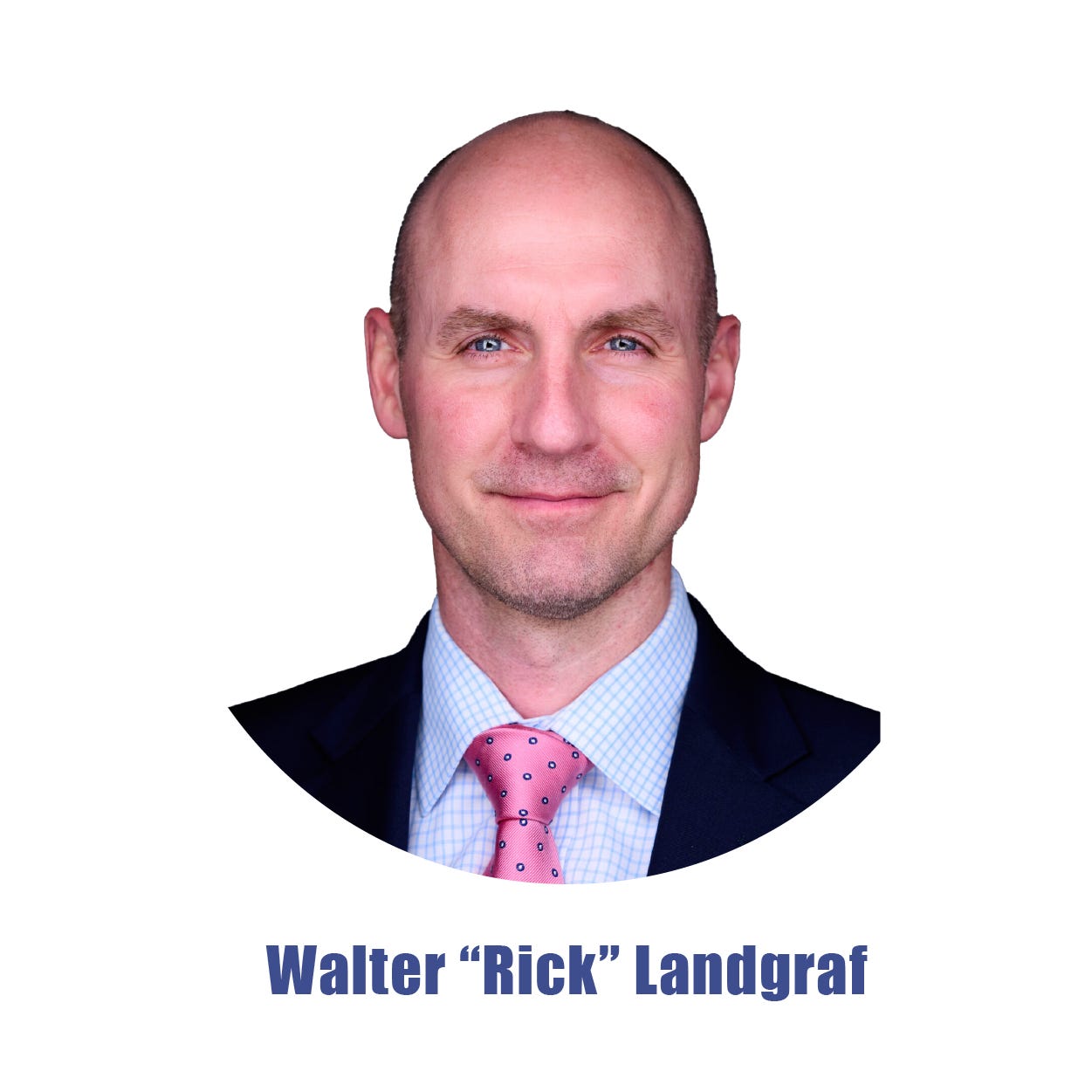Discover The Ties That Bind: Rearming the Alliance
The Ties That Bind: Rearming the Alliance

The Ties That Bind: Rearming the Alliance
Author: FPRI Eurasia Program
Subscribed: 1Played: 1Subscribe
Share
© FPRI Eurasia Program
Description
A podcast of the Foreign Policy Research Institute examining how NATO shapes the transatlantic relationship and its role in the global security landscape.
tiesthatbind.substack.com
tiesthatbind.substack.com
13 Episodes
Reverse
Welcome back to the Ties That Bind, a project of the Foreign Policy Research Institute examining the past, present, and future of NATO and the transatlantic relationship. This season we examine how Western European NATO members like Germany are shifting their defense policies, pursuing rearmament, and what lies ahead for the future of European security.This week we are pleased to feature a conversation with FPRI President Aaron Stein and Roland Theis, a Member of the German Bundestag (CDU/CSU) who sits on the Defense and European Affairs Committees. The two discuss shifts in German defense policy, the erosion of transatlantic trust, and a way forward on rebuilding a strong US-European ties. You can read a transcript of their conversation here.The third season of the Ties That Bind is generously supported by the Konrad Adenauer Foundation. This is a public episode. If you would like to discuss this with other subscribers or get access to bonus episodes, visit tiesthatbind.substack.com
Welcome back to the Ties That Bind.This week, we are looking further south along NATO’s eastern flank at Romania.Romania has long advocated for increased NATO and US presence in the Black Sea. Since the 2022 Russian invasion of Ukraine, the importance of the Black Sea and Romania’s role have been reflected in an increased NATO presence and multiple defense and infrastructure investments. The country has been a critical actor in helping the Ukrainian war effort, serving as a logistics and military training hub, and securing Ukrainian grain exports in the first years of the war.In this episode, we’ll hear from three Romanian experts about the country’s role in NATO and Black Sea security, its defense investments, and plans to address strategic infrastructure challenges that have far-reaching significance for the alliance. We’ll also hear about what’s happening on the domestic front, notably the long-term repercussions of the annulled 2024 presidential election. While public opinion shows high support for NATO, Romania and its neighbors continue to be targeted by long-term Russian influence campaigns, and we’ll hear how these are affecting social attitudes towards NATO and Western institutions.Featured Guests* Antonia Colibasanu, Senior Analyst, Geopolitical Futures, FPRI Senior Fellow* Eusebiu Slavitescu, European defense analyst, former Romanian MFA* Alina Bargaoanu, Communications expert, University of Political Studies and Public Administration, Bucharest This is a public episode. If you would like to discuss this with other subscribers or get access to bonus episodes, visit tiesthatbind.substack.com
Welcome back to the Ties That Bind. This season, we are looking at NATO from a bit of a different vantage point, specifically that of the frontline states. How are frontline states investing in and planning for their defense? How are they thinking about their role and contributions in the Alliance and on the world stage? How have their historical experiences shaped how their governments and societies think about defense, countering disinformation, and changing economic realities? And how are they preparing for a potential conflict with Russia? This week, we are looking at Poland, a country that has completely transformed its military and defense capacity over the last two decades. Periods of transition are not always painless, and we’ll hear what challenges Poland has faced and what opportunities lie ahead as it looks to become a leading voice within the alliance and on the world stage.Featured Guests: * Anna Fotyga, former Polish Foreign Minister, 2006-2007 * Tomasz Szatkowski, former Deputy Defense Minister, 2015-2019, and Ambassador to NATO, 2019-2024* Jakub Romaniuk, Programme Director, Foundation Institute for Eastern Studies The full interviews with all of our guests will be available soon. This is a public episode. If you would like to discuss this with other subscribers or get access to bonus episodes, visit tiesthatbind.substack.com
Welcome back to the Ties That Bind. This week, we go even further north, to Finland, one of the alliance’s newest members. Like the other frontline states we’ve visited this season, Finland shares a turbulent and complicated history with Russia that has long molded its security and foreign policy. But unlike the other frontline states, it was not a member of NATO at the start of Russia’s full-scale invasion of Ukraine. February 24, 2022, proved to be a lynchpin moment for how Finnish society viewed its security and its future.In this episode, we’ll hear from two Finnish experts about that moment in time, both culturally and politically, about the process and challenges of Finland’s NATO accession, the country’s strategic role in the Arctic, and what it means for the alliance. We’ll also hear about Finland’s whole-of-society defense model, how the country’s culture has informed its security calculus, and what other allies can learn from the Finnish experience. And we’ll also discuss lessons for Finland’s history for Ukraine.Featured Guests:* Minna Ålander is an Associate Fellow at Chatham House and a Non-Resident Fellow at the Center for European Policy Analysis. * Joel Linnainmäki is a Research Fellow at the Finnish Institute of International Affairs and a former special advisor to the former Foreign Minister, Pekka Haavisto. This is a public episode. If you would like to discuss this with other subscribers or get access to bonus episodes, visit tiesthatbind.substack.com
Welcome back to the Ties That Bind.This week, we go back North to the shores of the Baltic Sea for a perspective from Latvia.In this episode, we’ll hear from three Latvian experts on the evolution of the country’s defense posture, NATO cooperation, and its response to Russia’s invasion of Ukraine. We’ll also hear about what’s happening on the domestic front, with the evolution of national and municipal civilian defense programs, Latvia’s infrastructure investments, and how the country’s public sector is thinking about resilience and building trust in a whole-of-society defense approach.Featured Guests* Māris Andžāns is the Director of the Center for Geopolitical Studies Riga and an associate professor at Rīga Stradiņš University.* Ieva Berzina is a Senior Researcher at the Center for Security and Strategic Studies, National Academy of Defense of the Republic of Latvia, and an associate professor at Vidzeme University of Applied Sciences.* Linda Ozola is a Councilor of the Riga City Council, and former Deputy Mayor of Riga (2020-2025). This is a public episode. If you would like to discuss this with other subscribers or get access to bonus episodes, visit tiesthatbind.substack.com
Welcome back to the Ties That Bind, A project of the Foreign Policy Research Institute examining how NATO shapes the transatlantic relationship and its role in the global security landscape.This week we welcome Oana Lungescu, the longest serving Principal NATO spokesperson to the podcast. Our conversation covers her personal experiences in communist Romania, her remarkable career trajectory as a journalist for the BBC and her decade serving as NATO ’s principal spokesperson. We also discuss the role of communications in countering NATO’s evolving challenges. This is a public episode. If you would like to discuss this with other subscribers or get access to bonus episodes, visit tiesthatbind.substack.com
In this episode we look back at a defining year in NATO history and we look ahead to the challenges and the opportunities positioned to shape the alliance in the coming years and decades. Featured guests: * Nina Soljan, Head of NATO Affairs and Security Policy, NATO Headquarters* Susan Colbourn, Historian; Associate Director of the Program on American Grand Strategy, Duke University * Sara Moller, Associate Professor, Security Studies Program at Georgetown University; Non-Resident Senior Fellow, Center for a New American Security; Non-Resident Senior Fellow, Atlantic Council. This is a public episode. If you would like to discuss this with other subscribers or get access to bonus episodes, visit tiesthatbind.substack.com
This conversation was recorded in late November and has been edited for clarity. Rick Landgraf: This is the Ties That Bind, NATO at 75 and Beyond, a podcast of the Foreign Policy Research Institute. Today, I'm speaking with Congressman Brendan Boyle, who represents Pennsylvania's second congressional district, which is entirely within the city of Philadelphia. He is also the chairman of the NATO Parliamentary Assembly's political committee. Congressman, thank you for joining us today.Congressman Brendan Boyle: Great to be with you.RL: You recently attended the 70th annual session of the NATO Parliamentary Assembly, which took place from November 22nd to the 25th in Montreal. Our listeners are aware of some of NATO's institutions, such as the North Atlantic Council, which is the supreme decision-making body, also the Senior Military Committee, which is the senior military authority inside of NATO, but they may not know much about the NATO Parliamentary Assembly.What is the parliamentary assembly and what is it’s purpose?BB: Well, it's great to be with you and it's a natural question because it's probably not as well known. Essentially the parliamentary assembly is the legislative component to NATO. All 32 NATO nations send a certain delegation of members of their own respective parliaments to serve in the NATO parliamentary assembly. Approximately seven years ago, I was appointed to be part of the US delegation. It is a bipartisan delegation, an equal number of Democrats and Republicans. And so we meet with our counterparts who are MPs in the UK parliament or members of the German Bundestag, et cetera. We meet every February in Brussels at NATO headquarters for our first session of the year, and then three other times at different NATO capitals or major cities throughout the year.I have found it to be an incredibly meaningful experience and a natural extension of my congressional service. I've built up relationships and real friendships with members of parliament from Europe and and from Canada. In light of the full scale Russian invasion of February 2022, I think that those relationships have proven to be enormously valuable in the world that we're living in.RL: Now what sort of role does the parliamentary assembly have in working with the North Atlantic Council or with the military committee? Is this an advisory role or is it something a bit more?BB: No, it's something quite more. After all, we're the ones who are ultimately paying for the defense budgets for each of these NATO countries. For example, as you know, recently, NATO's major strategic document was updated at the Washington summit, the first time in 10 years. We wrote a lot of what ultimately went into that document and had been doing a lot of that sort of legwork for years in advance. It was a very important update by the way because the previous NATO strategic document said that Russia was a strategic partner and didn't mention one word about China. So we led to a major revision of the NATO strategic document.Of course, the primary role we play is as members of our own home country's parliaments, or in our case, the United States Congress. But the fact that we're able to come together and speak with one voice on NATO policy has in some ways ended up leading our home country executives branches when it comes to NATO policy. We were probably ahead of where our executive branches were on a number of things as it relates to NATO, especially vis-a-vis Russia.RL: Now you've been involved in the parliamentary assembly for some time. um But going back a little bit further into your own background, what got you interested in foreign policy and foreign relations in the first place?BB: Well, I was first elected to Congress exactly 10 years ago, and my first committee was the Foreign Affairs Committee. So from the very beginning, I've been quite involved as it relates to foreign policy. But I have to say, my initial interest in foreign affairs really goes back to as far as I can remember. I was a fairly nerdy school kid and I was always following this stuff. I think the fact that I grew up at the tail end of the Cold War in the 1980s, played a major factor. One of the most memorable events of my childhood was November 9th, 1989, the day the Berlin Wall fell. I was 12 years old, and about to turn 13, and that whole year where so many countries behind the Iron Curtain started the year off as communist and unfree. And by the end of the year, we're free.That was really the most dramatic year of my childhood. And I followed it enormously carefully. I remember watching movie after movie as a kid about how the Soviets might win and how we would face annihilation. And then to see all of that go away, and see the democratic revolutions throughout Europe, there was a belief at the time that we're at the end of history and we all live happily ever after.And then in the post 9/11 world you recognize that, well, you know real life isn't quite that simple. So these are issues that have interested me for really my entire life.RL: As you said, the Cold War, of course, was was part of NATO's original existence, and then the Alliance has done quite a bit to adapt to the post-Cold War strategic environment from opening up to the countries that were formerly part of the Soviet Union or Warsaw Pact countries, eventually inviting quite a number of those countries into the Alliance through enlargement then broadening its partnerships kind of across the globe and and broadening its its reach, missions, and operations across the globe to include Afghanistan, which a lot of allies and partner partners played a really large role in.I wanted to ask you about your perspective as someone who's born and raised in Philadelphia. Obviously, the Foreign Policy Research Institute is Philadelphia's foreign policy focused think tank, one of the very few foreign policy focused think tanks outside of Washington, DC.You mentioned earlier about growing up in the post-Cold War and the Cold War era toward the end. And I remember, I'm sure as you do, watching those movies, Top Gun, the Rocky movies, especially Rocky IV with the yeah ah big fight against between Rocky and Ivan Drago, seeing the Cold War sort of play out on on the big screen. As a Philly guy, what sort of outside perspective do you bring to your work at NATO?BB: Well, first I'm very proud that FPRI is based here in Philadelphia. I'm a strong supporter of it. It's important to me as a born and raised Philadelphian and someone who lives here. I don't want us to just be known abroad as New York and Washington and oh yeah, there's some other city in the middle. I have to admit as a Philly guy that bothers me. And so I was proud this past spring to bring more than 50 of my NATO parliamentary colleagues to Philadelphia. So these are people who are MPs from across Europe and Canada. And I had them here in our area for three days: a day at Princeton University, where I'm a visiting lecturer this semester, and then two days right in the heart of Philadelphia on Independence Mall, overlooking Independence Hall for two days of our sessions.So that was an opportunity for me frankly to show off our city and the sort of overwhelming enthusiastic praise I got from my colleagues really was gratifying. So making sure that the institutions here in Philadelphia are more known worldwide and it's not just New York and Washington is something important to me and it complements the work that I do in Congress.I will make one other point. We are a city that has obviously over the generations been populated by immigrants, and second and third immigrant generation families, including my own. My father and my mother's parents were born in Ireland. We have a large Eastern European and former Soviet Union immigrant population over the last 40, 50 years. And so that actually gives a kind of domestic reason why I, as a member of Congress from here, need to pay attention to this stuff, even if I didn't have the strong interest in foreign affairs that I do.I have a large Ukrainian American diaspora in my district in Philadelphia that has been working with me in my office from the first day I was elected 10 years ago. So that does give kind of a homegrown reason to be involved in these issues, even above and beyond my own interest in foreign affairs and why I think they're important to the United States of America.RL: And that kind of goes into my next question. The topic of US engagement abroad and America’s relationship with allies and partners abroad, has been a hot topic of the presidential campaign over the past year or so. And to some extent, NATO has been more politicized than it ever has been within a domestic political context. How do you explain to your constituents, how and why NATO is important for US national security?BB: This is the key question right now at this time. There has always been an isolationist instinct in the United States of America. One of the many things Mark Twain is famous for saying is that America has two best friends in the world, Miss Atlantic and Mr. Pacific.There's also that old joke that the real purpose of NATO is to keep the US in, the Russians out, and the Germans divided. Now obviously that last part about Germany is no longer operable, but I think the first two very much are about keeping the Russians out and the US in. There has always been a fear in Europe that the US would turn within itself and ignore Europe and we'd be forced to relearn the lessons of history which would end up sending a lot of American service members over to fight in Europe. Presidents of the recent past or relatively recent past from Ronald Reagan and Dwight Eisenhower to JFK, through both Bushes had been quite eloquent about the fact that we need to resist that isolationist tendency because it's a terrible mistake. We'll end up paying a far bigger price if we ignore Europe, both in financial terms and more physical terms. If we ignore threats in Europe
In this episode we explore the history and evolution of NATO’s Indo-Pacific partnerships, the alliance’s role in the growing US-China rivalry, and look ahead to a new era of NATO engagement outside of the Atlantic in a time of increasingly interconnected global conflicts. Featured guests: * Gwendoline Vamos, Senior Officer, Asia-Pacific Global Partnerships at NATO Headquarters* Ian Langford, senior military officer (retired), Australian Defense Forces* Peter Olive, senior military officer (retired), United Kingdom Royal Navy* John Hemings, Senior Associate Director, Pacific Forum This is a public episode. If you would like to discuss this with other subscribers or get access to bonus episodes, visit tiesthatbind.substack.com
There has been much debate over defense spending, investment, and who is sharing the burden of European defense among NATO allies for years. Russia’s full scale invasion of Ukraine in 2022 has served as a grim and stark reminder of European defense investment shortcomings and vulnerabilities.It has been a few months since NATO allies met in Washington to commemorate the alliance’s 75th anniversary. In this episode we are joined by Ambassador Doug Lute, Colonel Jordan Becker, and German defense expert Aylin Matle to examine the contours of the burden-sharing debate within the alliance, what major decisions came out of the Washington summit, and what lies ahead. Related Reading: The Time For Europe to Step Up Is Now - War on the RocksThe views expressed on this podcast are those of the participants alone and do not represent those of the US Military Academy, the US Army, the Department of Defense, or any part of the US government. This is a public episode. If you would like to discuss this with other subscribers or get access to bonus episodes, visit tiesthatbind.substack.com
An insider's look into NATO with Benedetta Berti, the Director of Policy Planning in the Office of the Secretary General. The following conversation was recorded on July 3, 2024. This is a public episode. If you would like to discuss this with other subscribers or get access to bonus episodes, visit tiesthatbind.substack.com
In this episode we go back to the beginning. What is NATO? What challenges has NATO faced in the past? How are these similar or different to today’s issues? Why is NATO important for US national security? Why should Americans care about the security of Europe? Former NATO Secretary General Jaap de Hoop Scheffer, Ambassador Alexander Vershbow, and Seth Johnston join Rick to explain NATO’s history, its purpose, and its evolution over the past seven decades. Listen to Episode 1 here. This is a public episode. If you would like to discuss this with other subscribers or get access to bonus episodes, visit tiesthatbind.substack.com
Maintaining political cohesion on the issue of continuing the flow of Western military aid to Ukraine is a pressing concern for NATO and will be at the top of the agenda when the heads of state and government of the 32 allies meet in Washington, DC from July 9th to 11th. While support for Ukraine will likely remain stable in the short-term, what lies ahead is less certain. What is NATO’s role in the war in Ukraine? Why is Russia against Ukraine in NATO? Why does NATO want to expand to Ukraine? Why does Ukraine want to join NATO? To answer these questions, and more, host Rick Landgraf speaks with Dominik Jankowski, John Deni, and Lisa Aronsson.Complete transcripts of all interviews are available here. This is a public episode. If you would like to discuss this with other subscribers or get access to bonus episodes, visit tiesthatbind.substack.com


